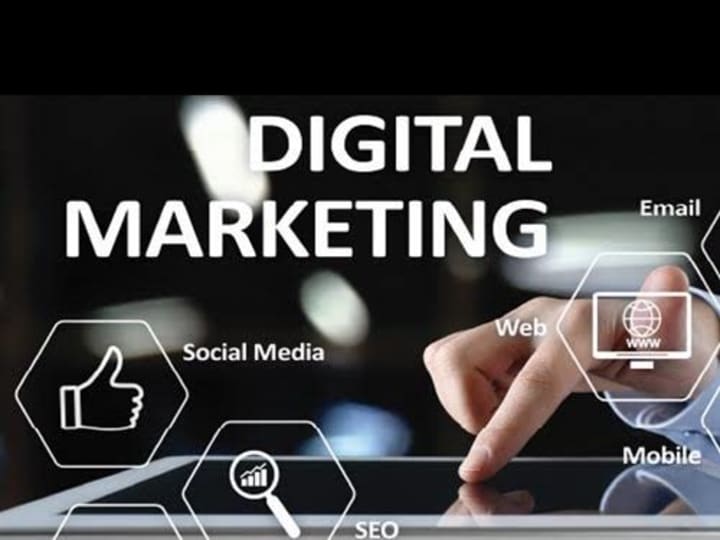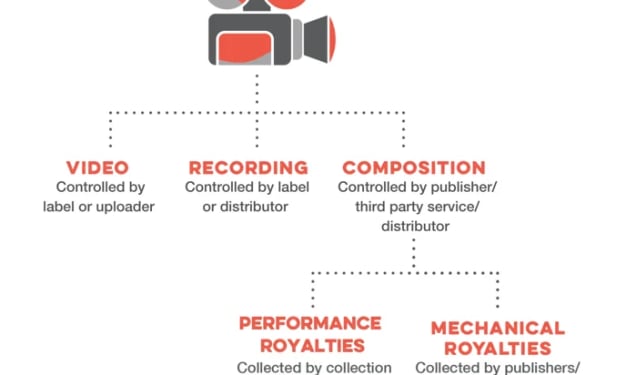Unlocking the Power of Digital Marketing: A Comprehensive Introduction
The Evolution, Importance, and Advantages of Digital Marketing for Modern Businesses

Businesses need to contact their target population successfully in order to remain ahead of the competition in today's world. Digital marketing has become an essential instrument for companies to interact with their customers and advertise their goods and services as a result of the development of technology. We will examine the fundamentals of digital marketing, as well as its significance and historical development, in this piece.

Digital marketing: What is it?
Digital marketing is the practice of promoting goods and services through digital means such as websites, email, mobile applications, social media platforms, and search engines. Search engine optimization (SEO), pay-per-click (PPC) ads, social media marketing, content marketing, email marketing, and smartphone marketing are just a few of the strategies it covers.
By utilizing the power of technology and data, digital marketing enables businesses to contact their target population at the ideal moment and location. Businesses can create individualized and tailored marketing strategies by using data analytics to gain valuable insights into customer behavior and tastes.
What makes internet marketing so crucial?
The spread of mobile devices and the growth of the internet have changed how people engage with companies and consume information. With the ability to study goods and services, evaluate rates, and make purchases online, consumers are now more empowered than ever. In this environment, digital marketing has become essential for companies to connect with and involve their target market.
Comparing digital marketing to conventional marketing has many advantages. First off, it enables companies to expand their customer base beyond their local market by utilizing the internet's extensive worldwide reach. Second, it gives companies immediate feedback and insights so they can tweak their marketing strategies and assess their effectiveness. Last but not least, digital marketing is more economical than conventional marketing because it does not require pricey paper or broadcast media.

Digital marketing's evolution over time Digital marketing has a lengthy and intriguing past that dates back to the 1980s, the decade that saw the debut of the first personal computers. Email marketing was the first type of digital marketing, which involved delivering advertisements to a user list. New types of digital marketing, like banner advertising and pop-up ads, were made possible by the development of the internet and the World Wide Web in the 1990s.
Search engines and SEO emerged in the early 2000s, enabling companies to optimize their webpages to appear higher in search engine results pages. (SERPs). The introduction of LinkedIn in 2003 signaled the start of social media marketing, which has since grown to be one of the most well-liked types of digital marketing. Pay-per-click advertising made its debut in 2005 with the launch of Google AdWords, which allows companies to put ads on search engine results sites and only be charged when a user clicks on their ad.

With the proliferation of mobile devices and the growing significance of content marketing over the past ten years, digital marketing has continued to advance quickly. To draw and keep consumers in the modern era, businesses must produce interesting and useful content while also making their webpages and social media accounts mobile-friendly.
Digital Marketing's Advantages Over Traditional Marketing Compared to conventional marketing strategies, digital marketing has a number of benefits, such as:
Greater Reach:
By utilizing the worldwide reach of the internet, digital marketing allows companies to reach a broader population outside of their local market.
Real-time Feedback:
Businesses can optimize their marketing efforts and assess their effectiveness thanks to the real-time feedback and information provided by digital marketing.
Cost-effectivenes:s
Because digital marketing does not require expensive paper or broadcast media, it is more affordable than conventional marketing.
Personalization:
Using consumer information and insights, companies can use digital marketing to develop personalized and targeted marketing strategies.
Flexibility:
Due to the ease with which companies can modify their marketing strategies in reaction to changes, digital marketing provides greater flexibility.
This essay extends the discussion from earlier ones.
About the Creator
Enjoyed the story? Support the Creator.
Subscribe for free to receive all their stories in your feed. You could also pledge your support or give them a one-off tip, letting them know you appreciate their work.






Comments
There are no comments for this story
Be the first to respond and start the conversation.